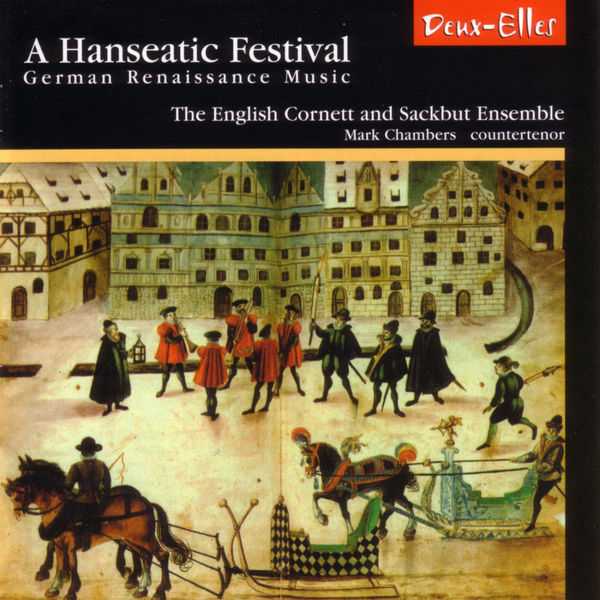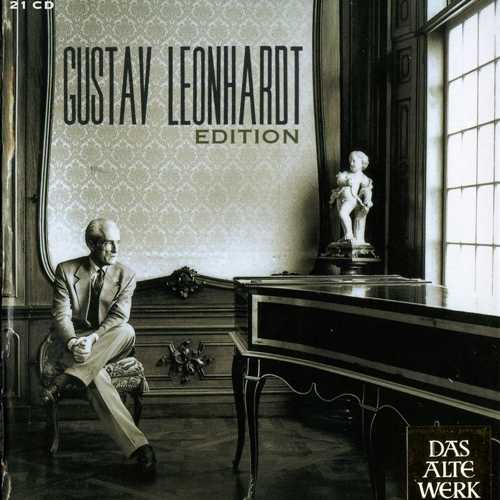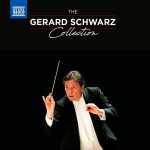
Performer: Mark Chambers, English Cornett, Sackbut Ensemble
Format: FLAC (tracks)
Label: Deux-Elles
Catalogue: DXL1088
Release: 2005
Size: 234 MB
Recovery: +3%
Scan: cover
01. Scheidt: Canzon super O Nachbar Roland
02. Albert: Bekehrung zum Herren Christo
03. Schildt: Paduana Lachrymae
04. Scheidt: Nun komm der Heiden Heiland
05. Fuhrmann: Entrata
06. Fuhrmann: Gaillarda 15
07. Scheidt: Paduan
08. Mertelius: Cancio Germanica
09. Scheidt: Ach mein herzliebes Jesulein
10. Schop: Das alst ist abgegangen
11. Simpson: Pasameza
12. Simpson: Bonny Sweet Robin, ricercar from Taffel-consort (1621)
13. Praetorius: In dulci jubilo
14. Scheidt: Von Himmel hoch
15. Altenburg: Ein wunderschönes Kinderlein
A Hanseatic Festival: German Renaissance Music is a disc that, when it came out, had its field mostly to itself. The German Renaissance in general is underrepresented on recordings, and the idea, laid out in the liner notes, of focusing on the Stadtpfeifern, the city musicians of mercantile northern Germany, is delightful and potentially instructive: anyone who has done cursory reading about J.S. Bach has encountered the concept of the city musician, but few of us know much about them. A Hanseatic Festival contains some fascinating pieces of background information. Did you know that the word “oboe” derives ultimately from Arabic naubat, the Islamic tower watchman who punctuated his vigil by sounding of reed and percussion instruments? And the music is a pleasingly varied collection of indoor and outdoor works from the early seventeeth century; the city musician was a jack-of-all-trades who supplied ceremonial, religious, and domestic music as needed. The English Cornett and Sackbut Ensemble is not out of place, for English musicians, including composer Thomas Simpson represented here, were active in Germany during this time. Familiar tunes — “Nun komm der Heiden Heiland,” “In dulci jubilo” — weave in and out of the music.
Yet there is certainly room for another ensemble to take a crack at this repertory. Ensemble director Keith McGowan’s liner notes deal in vague generalities; much of the music on the disc isn’t specifically mentioned at all. McGowan has apparently contributed compositionally to some of the music; there’s nothing in the notes that tells us what. For the listener who likes to fill in the blanks imaginatively, the sparseness of the notes may not be a defect, but others may find them off-putting. The recorded sound on offer from England’s Deux-Elles label is too close-up, full of buzzy breath noise. The use of a countertenor in some of the more domestic pieces can certainly be questioned, and countertenor Mark Chambers is intonationally shaky at times. A Hanseatic Festival has the feel of a not-fully-realized project, but those interested in German Renaissance history and culture will want to own it.



